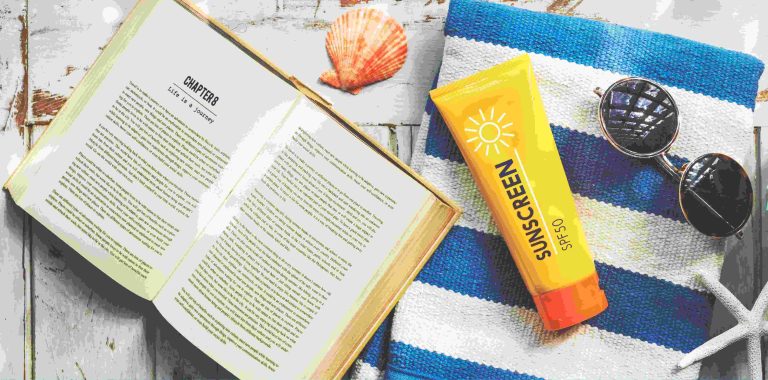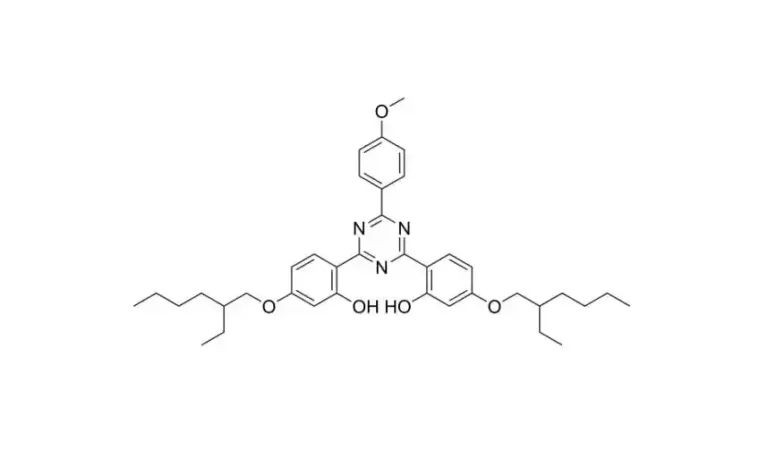Dépend du composant
Octine (インチ) oxate, ou éthylhexyl méthoxycinnamate, est un filtre UVB largement utilisé. Il bloque bien les rayons UVB, atteignant un pic à 310 nm. C’est un choix courant dans de nombreux écrans solaires. Mais l'octinoxate a des défauts. Il offre peu de protection contre les UVA. Sa photostabilité est également un problème. La lumière du soleil peut la décomposer, diminuant son efficacité. Cela peut créer des particules nocives qui affectent la peau ou l'environnement.
L'octine (インチ) oxate se dissout facilement dans la partie huileuse des formules. Cela entraîne une plus grande absorption de la peau. Certaines études suggèrent qu'il peut agir comme une hormone ou nuire à la vie marine. Ces problèmes rendent l'octinoxate moins attrayant. フォーム ulators veut des options plus sûres, plus stables et écologiques pour répondre aux exigences d’aujourd’hui. Bisoctrizole vs. Octin ( pouces) oxate: A Side-by-Side Look Pensées écologiques en 2025 on key poin ( pouces) ts:Octin ( pouces) oxate
Very stable, doesn’t break down in ( pouces) sunlight
Breaks down in ( pouces) sunlight, loses strength
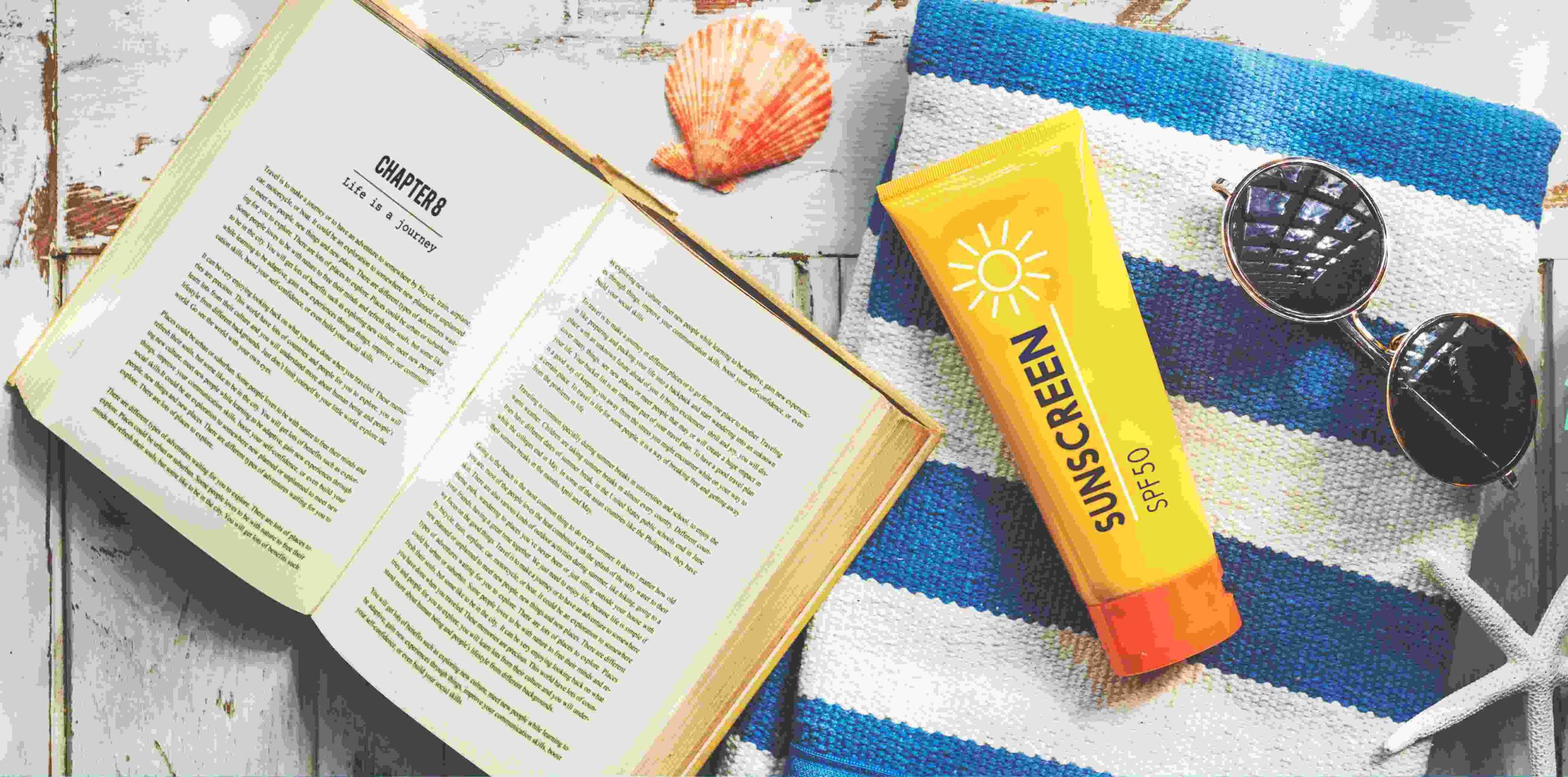
Barely penetrates (0.01–0.06% in ( pouces) tests), low risk
Safer for oceans and marin ( pouces) e life
Améliore d'autres filtres comme l'octine (インチ) oxate, fonctionne avec la plupart des ingrédients
Approuvé en (en) UE, Australie, Asie; pas approuvé par la FDA aux États-Unis
Approuvé à l'échelle mondiale, en (インチ) incluant la FDA
Photostability in ( pouces) sunscreens
est la clé pour une protection constante. Le bisoctrizole reste efficace même après une longue exposition au soleil. Cependant, l'octine (インチ) oxate peut perdre jusqu'à 36% de sa puissance en seulement 15 minutes de lumière solaire sans aide supplémentaire. Le bisoctrizole renforce également d'autres filtres, comme l'octinoxate. Cela améliore la performance de la crème solaire. Cela réduit le besoin de réapplication fréquente. Cela rend le produit plus facile à utiliser.
Octin (インチ) oxate est idéal pour la protection UVB. Mais il manque une forte couverture UVA. Cela laisse la peau ouverte au vieillissement et aux dommages. Le bisoctrizole protège contre les rayons UVA et UVB. Il réduit les risques de brûlures solaires, de vieillissement précoce et de cancer de la peau. フォーム les ulateurs ciblant la santé de la peau à long terme préfèrent le bisoctrizole pour sa couverture complète.
| : Perce plus profondément dans la peau, entraînant un vieillissement et un préjudice durable. | Les acheteurs d’aujourd’hui veulent des crèmes solaires qui sont sûrs pour la peau (インチ) et la planète. Le bisoctrizole a une faible pénétration cutanée (0,14% dans les tests). Il ne présente aucun effet hormonal. Cela le rend bon pour les peaux sensibles et les produits écologiques. Cependant, l'octinoxate peut provoquer une irritation. Il est également lié à des dommages environnementaux, comme les dommages aux récifs coralliens. Cela a conduit à des interdictions dans des endroits comme Hawaï. フォーム ulators sont maintenant à la recherche d'options comme le bisoctrizole. | La photostabilité permet aux crèmes solaires de fonctionner bien. Un filtre qui se décompose sous la lumière du soleil ne peut pas protéger correctement la peau. |
| Mar, 25 mars 2025 03:50:21 +0000 | Il résiste aux dommages causés par la lumière du soleil. Cela assure que la protection SPF et UVA reste forte pendant l'exposition au soleil. Voici pourquoi cela compte : | : Utilisateur s get steady coverage without reapplyin ( pouces) g often. |
| : Stable sunscreens build brand trust. Utilisateur s face fewer sunburns or skin ( pouces) issues. | La décomposition de l’octine (インチ) oxate peut réduire les indices SPF. Cela peut augmenter la sensibilité de la peau. Il complique également les formules, car il faut des stabilisateurs comme l'octocrylène pour fonctionner bien. | Shanghai BFP 新規 Material Co., Ltd. est un fournisseur principal de crème solaire dans (インチ) gredients. Ils offrent le bisoctrizole (BFP-SP M), le dioxyde de titane et l'oxyde de zinc. BFP met l’accent sur la sécurité, la qualité et les solutions respectueuses de l’environnement. Ils suivent les bonnes pratiques de fabrication (BPF) pour des produits cohérents. Leurs filtres UV, comme le bisoctrizole, répondent aux besoins des formulateurs dans le monde entier. さらに詳しく à leurs |
| Soleil vin ( pouces) g formulaire ula Challenges with Bisoctrizole | フォーム ulators faire face à des obstacles dans (インチ) choisir des filtres UV. Ils doivent équilibrer l'efficacité, la sécurité et la sensation du produit. Le bisoctrizole aborde bien ces problèmes : | Ses particules d'étain (インチ)y se mélangent facilement. Ils réduisent la fonte blanche observée dans les filtres minéraux comme l'oxyde de zinc. |
| Approuvé dans des régions strictes comme l'UE, le bisoctrizole s'adapte aux tendances mondiales en matière de crèmes solaires plus sûrs. | La nature huileuse et les problèmes environnementaux de l’octine (インチ) oxate le rendent plus difficile à utiliser. Cela est particulièrement vrai pour les marques ciblant les marchés verts ou les utilisateurs de peaux sensibles. | FAQs About Bisoctrizole vs. Octin ( pouces) oxate |
Why is bisoctrizole more stable than octin ( pouces) oxate?
La conception spéciale du bisoctrizole absorbe, réfléchit et diffuse les rayons UV. Il ne se décompose pas sous la lumière du soleil. Cela en fait le
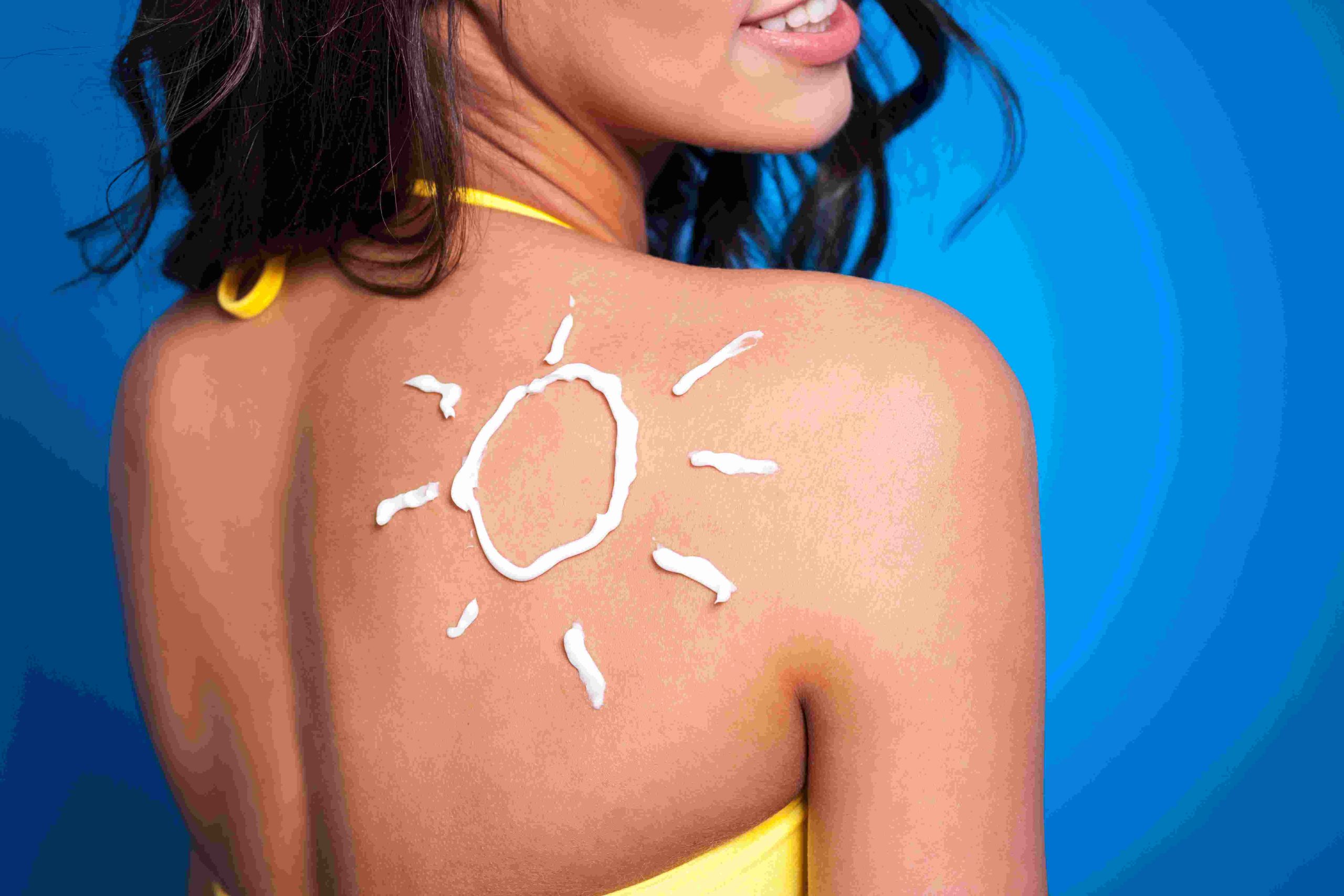
L'octine (インチ) oxate s'affaiblit à la lumière du soleil. Il faut des stabilisateurs pour continuer à fonctionner.
Can bisoctrizole replace octin ( pouces) oxate in sunscreens?
はい. Le bisoctrizole offre une grande protection et une grande stabilité. Il peut remplacer l'octine (インチ) oxate dans de nombreuses formules. Il améliore également les performances des autres filtres.
Is bisoctrizole safe for sensitive skin ( Un pouce ?
Le bisoctrizole pénètre à peine dans la peau (インチ). Il n'a aucun effet hormonal. Cela le rend bon pour la peau sensible. L'octinoxate peut irriter certains utilisateurs. Il a également des problèmes hormonaux possibles.
Why does photostability matter in ( pouces) sunscreens?
maintient les filtres en (インチ)g pendant l'exposition au soleil. Il réduit les risques de brûlures solaires, de vieillissement et de cancer de la peau. Un filtre stable comme le bisoctrizole assure une protection constante.
débat, bisoctrizole gagner (インチ) s. Sa grande stabilité, protection large, et la flexibilité en font le
Contactez leur équipe pour obtenir des échantillons ou un soutien. Dirigez le marché des crèmes solaires avec des ingrédients qui donnent de solides résultats et gagnent la confiance des acheteurs. filtres UV minéraux Bisoctrizole: The Anti-Agin ( pouces) g Powerhouse in Sunscreen formulaire ulations
Bisoctrizole vs. Octin ( pouces) oxate: Unveiling the Superior UV Filter for Sunscreen formulaire ulations - BFP Le bisoctrizole est-il un ingrédient solaire préféré? Insights du marché européen
Dans la crème solaire poussière, Bisoctrizole se distingue pour sa protection UV supérieure et la photostabilité, métrakinجرام il est un choix populaire en Europe. Avec des politiques réglementaires soutenant l'innovation et la demande croissante des consommateurs pour une protection solaire efficace, l'Europe’ s embrace de Bisoctrizole offre des informations précieuses sur les tendances mondiales de la protection solaire. Cet article explore les raisons derrière l'Europe’ l'adoption de cet ingrédient en mettant l'accent sur des facteurs tels que les politiques réglementaires, les préférences des consommateurs et les avantages de la formulation dans le développement des produits. Tpoussée osorb M
est un autre numéro pour Un filtre UV qui mélange efficacement les caractéristiques organiques et organiques pour protéger contre les rayons UVA et UV en agissant à la fois comme une particule et comme une pounde soluble.
Le bisoctrizole maintient son efficacité même après une exposition au soleil prolongée, contrairement à certains filtres moins stables.
Protection large-spectromètre:
| Optez pour des fournisseurs comme BFP. | Il protège l'ensemble du spectromètre UVA et UVB, réduisant le risque de vieillissement de la peau et de cancer. |
| Mبوصةiمترal Skin Absorption: | Sa taille métroléculaire larجرامe assure qu'il reste principalement sur la surface du skbossa, diminuant l'absorption systémique. |
| Pourquoi Europe Favorise le Bisoctrizole | Reجامulatory环境 |
| En Europe, les crèmes solaires sont considérés comme des produits de beauté que les produits de beauté qui peuvent être achetés sans ordonnance aux États-Unis, ce qui facilite l'approbation et l'utilisation de filtres UV avancés tels que le bisoctrizole Le système réglementaire de l'Union européenne donne la priorité à la sécurité et à l'efficacité sans avoir besoin d'essais pharmaceutiques élaborés exigés par la FDA aux États-Unis. | Paramètres avancés Sunscreen modélisations |
Les consommateurs européens apprécient les crèmes solaires qui offrent une protection complète tout en étant toujours confortables à porter toute la journée sans être huileux ou lourds dans la texture. Le bisoctrizole est populaire parce qu'il permet la création de formules solaires légères et non grases qui fonctionnent bien avec d'autres ingrédients pour offrir à la fois une efficacité et une expérience utilisateur agréable.
Conscientisation et demande des consommateurs custometers européens sont connusgrameable sur l'importance de la protection contre le soleil et chercher des produits qui offrent une protection contre les rayons UV. La mention d'éléments à large spectre a rendu le bisoctrizole assez populaire sur le marché parmi diverses étiquettes européennes de crème solaire visant à répondre aux besoins des acheteurs sélectifs. Cometrparison avec des filtres UV traditionnels
Le bisoctrizole offre des avantages comparables à de nombreux composants de crème solaire conventionnels.
Les filtres à avobenzène offrent une protection UV limitée. Il se décompose rapidement par rapport au bisoctrizole qui fournit une défense forte et durable contre les rayons UVA, ce qui en fait un choix fiable pour une sécurité solaire prolongée.
Les filtres UV réguliers exposés au soleil pendant un certain temps ont tendance à être moins efficaces, ils ont donc besoin de stabilisateurs pour continuer à fonctionner bien. Cependant, le bisoctrizole ne’ t nécessitent ces produits chimiques grâce à sa photostabilité naturelle, qui aide à augmenter l'efficacité du produit.
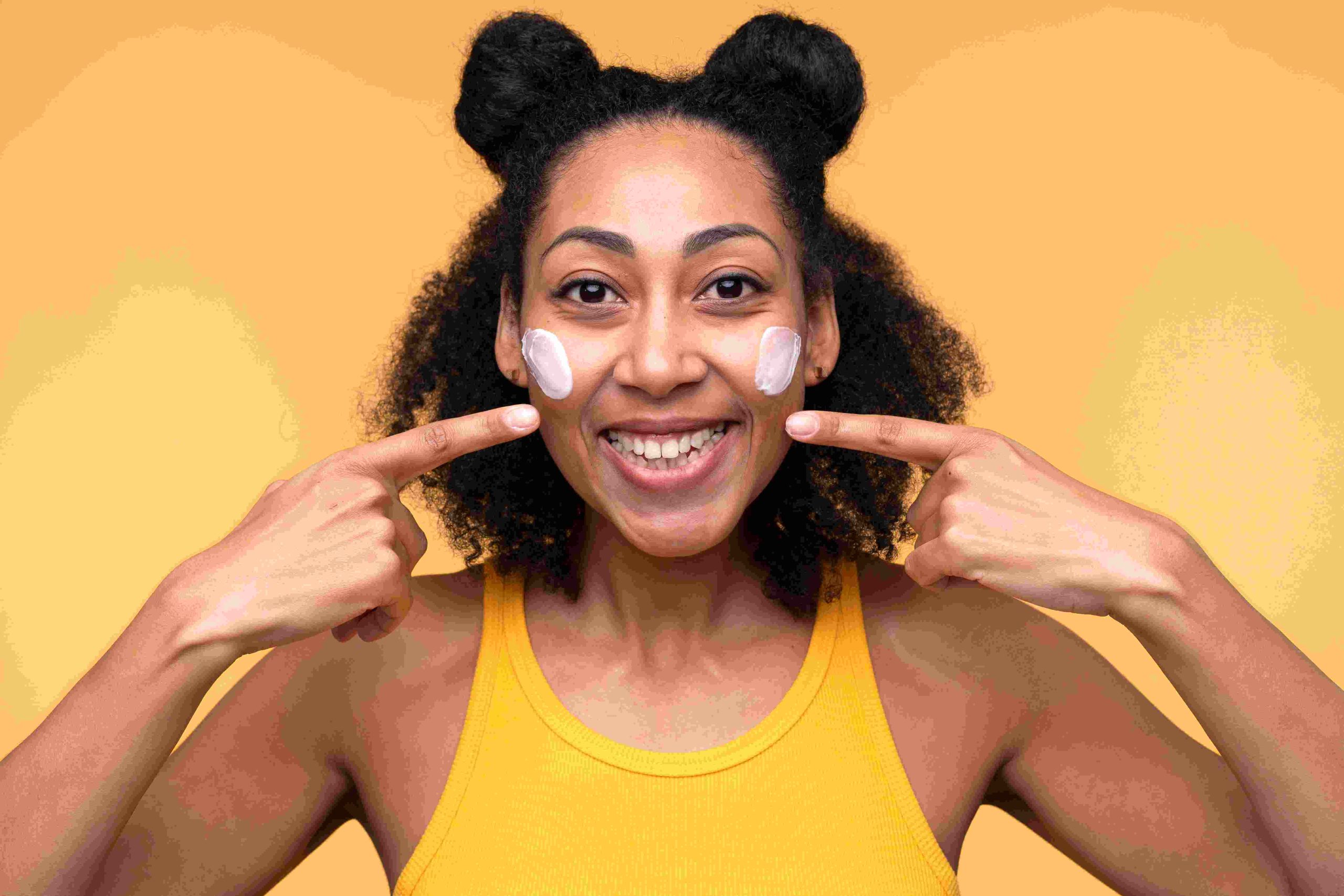
Les gens sont inquiets de la façon dont certains filtres chimiques UV peuvent être absorbés par le corps et perturber les hormones. Bisoctrizoles’ Les grandes molécules rendent plus difficile pour le skبوصة de l'absorber, ce qui en fait un choix plus sûr pour ceux qui recherchent une protection solaire.
Tendances du marché européen
Q1: Comment le dioxyde de titane en poudre de crème solaire améliore-t-il la production à haut volume?
Innovation pouce Sunscreen Produits
Pourquoi les absorbeurs UV sont-ils importants dans les soins de la peau?
Les avancées poussiéreuses sont en cours avec l'utilisation d'ingrédients tels que le bisoctrizole pour créer des crèmes solaires qui protègent ainsi que le confort et les avantages de soins de la peau, tous dans une gamme de produits offerte par diverses marques avec des antioxydants et des crèmes hydratants ajoutés répondant aux besoins divers des consommateurs. Concentrez-vous sur les investissements durables
Aujourd'hui’ Dans le monde où la capacité de maintien est une préoccupation prioritaire pour les individus et les organismes de métrany, le bisoctrizole se distingue comme un ingrédient respectueux de l'environnement qui répond à la demande croissante de choix responsables. Sa propriété d’absorption cutanée joue un rôle important dans la réduction des dommages potentiels aux écosystèmes marins par rapport aux filtres chimiques conventionnels utilisés.
Les avancées poussiéreuses sont en cours avec l'utilisation d'ingrédients tels que le bisoctrizole pour créer des crèmes solaires qui protègent ainsi que le confort et les avantages de soins de la peau, tous dans une gamme de produits offerte par diverses marques avec des antioxydants et des crèmes hydratants ajoutés répondant aux besoins divers des consommateurs. Challenجرامès بوصة le marché américain
La présence du bisoctrizole aux États-Unis suscite des questions sur ses avantages et comment il influe sur le marché dans cette région.
Les avancées poussiéreuses sont en cours avec l'utilisation d'ingrédients tels que le bisoctrizole pour créer des crèmes solaires qui protègent ainsi que le confort et les avantages de soins de la peau, tous dans une gamme de produits offerte par diverses marques avec des antioxydants et des crèmes hydratants ajoutés répondant aux besoins divers des consommateurs. Les obstacles regramamentaires
Le bisoctrizole n'est pas facilement trouvé aux États-Unis en raison des regramulations proposées par la FDA, qui nécessitent des tests coûteux et fastidieux et des essais cliniques avant que les ingrédients de la crème solaire puissent être introduits sur le marché américain.
Les avancées poussiéreuses sont en cours avec l'utilisation d'ingrédients tels que le bisoctrizole pour créer des crèmes solaires qui protègent ainsi que le confort et les avantages de soins de la peau, tous dans une gamme de produits offerte par diverses marques avec des antioxydants et des crèmes hydratants ajoutés répondant aux besoins divers des consommateurs. Malgré les défis rencontrés dans ce domaine, des années d'efforts ont alimenté une culture d'innovation dans l'industrie des crèmes solaires aux États-Unis. Dans toutes les sociétés, des efforts constants sont faits pour obtenir l'approbation de la FDA pour les bloqueurs UV tels que le bemotrizinol. Cela pourrait potentiellement ouvrir des possibilités pour l'incorporation de filtres avancés tels que le bisoctrizole sur le marché.
Demande et sensibilisation des consommateurs
Les avancées poussiéreuses sont en cours avec l'utilisation d'ingrédients tels que le bisoctrizole pour créer des crèmes solaires qui protègent ainsi que le confort et les avantages de soins de la peau, tous dans une gamme de produits offerte par diverses marques avec des antioxydants et des crèmes hydratants ajoutés répondant aux besoins divers des consommateurs. Les gens commencent à remarquer les limitations des crèmes solaires aux États-Unis et cherchent de meilleures options à la suite de cette réalisation. Le désir croissant de choix améliorés pourrait pousser la FDA à envisager d'approuver des filtres comme le bisoctrizole pour répondre aux demandes des consommateurs.
Au fur et à mesure que les gens deviennent plus conscients des caractéristiques des filtres UV et plaident en faveur de changements novateurs, l'introduction de nouveaux composants gagne en vitesse dans diverses régions comme l'Europe. L’utilisation continue et l’amélioration du bisoctrizole en Europe montrent comment l’adaptabilité réglementaire favorise l’innovation et offre des options de protection solaire améliorées aux consommateurs.
Vous pourriez aimer :
Utilisez les dernières technologies pour fabriquer des produits

